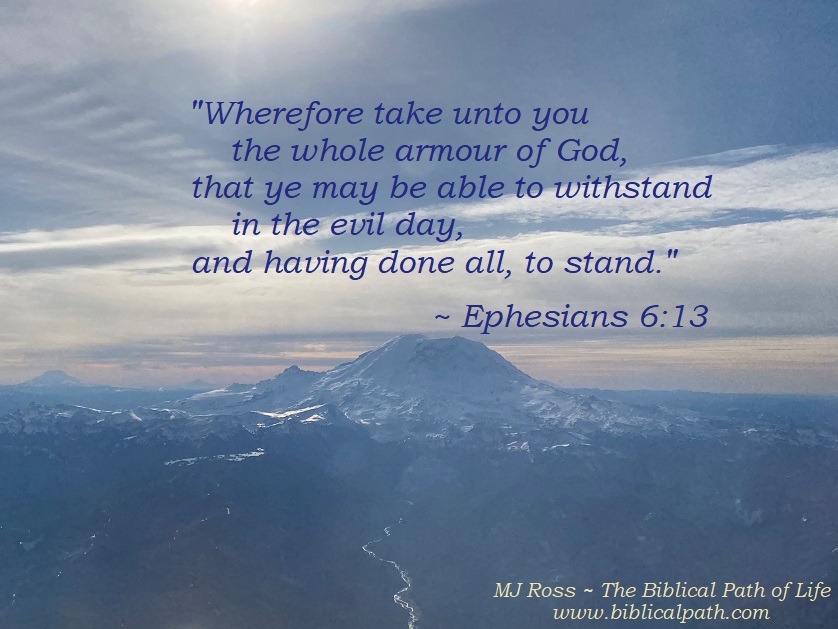
Ephesians 6:13
Nehemiah was a man who was faithful in his job as a king’s cupbearer in the land of Persia. Yet when he heard of the condition of the broken down walls in Jerusalem, he had a desire to do something about it. First, he prayed. Then when the king asked what he wanted, Nehemiah asked if the king would send him to Jerusalem, the home of his people, to build it. The king sent him. Nehemiah led the people to rebuild the city walls in spite of the resistance against them, encouraging the people to remember God was with them. This is what we remember Nehemiah for accomplishing. However, Nehemiah did so much more.
Nehemiah understood the importance of not only the physical rebuilding of the city that was needed, but also the spiritual rebuilding that must coincide. When he saw wrong living among the people, he “consulted” with himself and understood what was needed to make corrections. He knew the Word of God and helped apply those principles to the people’s living. Throughout these changes, the enemies constantly tried to harm or kill Nehemiah. Nevertheless, he perceived this danger, and by God’s grace avoided those instances of mischief.
Nehemiah had promised the king he would return to fulfill his job in Persia. Because of that promise to leave Jerusalem, Nehemiah understood the importance of implementing certain things before he left. He set porters (watchmen) at the doors of the newly built walls, and made sure the religious leaders were organized in their jobs. Nehemiah also established faithful leadership that feared God. Ezra (the ready scribe) read the Law of Moses to the people, and the Levites helped the people understand what was read. When the people heard and understood the Word of God when it was read to them, there was a time of weeping. They recognized the sin in their lives, and they chose to eliminate that sin from their lives. The people committed to follow the Law of Moses. Through all of these actions, Nehemiah was teaching the people to know how to stand.
- To stand in the truth of God’s Word and oppose the evil that tried to stop the people from rebuilding and protecting the city.
- To recognize the leaders who feared God that had been placed over them.
- To know the truth of God’s Word understanding how to live lives pleasing to God.
Nehemiah was faithful to complete the job God had for him. This job included teaching the people.
One cannot help but compare the things Nehemiah did to the truths Paul wrote of to the church at Ephesus. He wanted them to know how to stand in the wicked days in which they lived. He gave them principles of God’s Word, teaching them how to live. However, one could not do it on their own. He taught them: “Wherefore take unto you the whole armour of God, that ye may be able to withstand in the evil day, and having done all, to stand” (Ephesians 6:13). What is this armor one needs to be able to stand and not fall in the evil days?
One needs the following: “14. Stand therefore, having your loins girt about with truth, and
having on the breastplate of righteousness; 15. And your feet shod with
the preparation of the gospel of peace; 16. Above all, taking the shield
of faith, wherewith ye shall be able to quench all the fiery darts of the
wicked. 17. And take the helmet of salvation, and the sword of the
Spirit, which is the word of God: 18. Praying always with all prayer and
supplication in the Spirit, and watching thereunto with all perseverance and
supplication for all saints” (Ephesians 6:14-18).
- Truth
- Righteousness
- Gospel
- Shield of Faith
- Salvation
- Word of God (sword)
- Prayer
- To Watch
Can you see these truths lived out in the life of Nehemiah, centuries before they were written to the church at Ephesus? God’s Word never changes. The ability to life a life pleasing to God is the same today, just as it was in the Old Testament times as well as in the New Testament times.
Do you live a life where you stand in the Truth of God’s Word, having taken the Whole Armor of God?